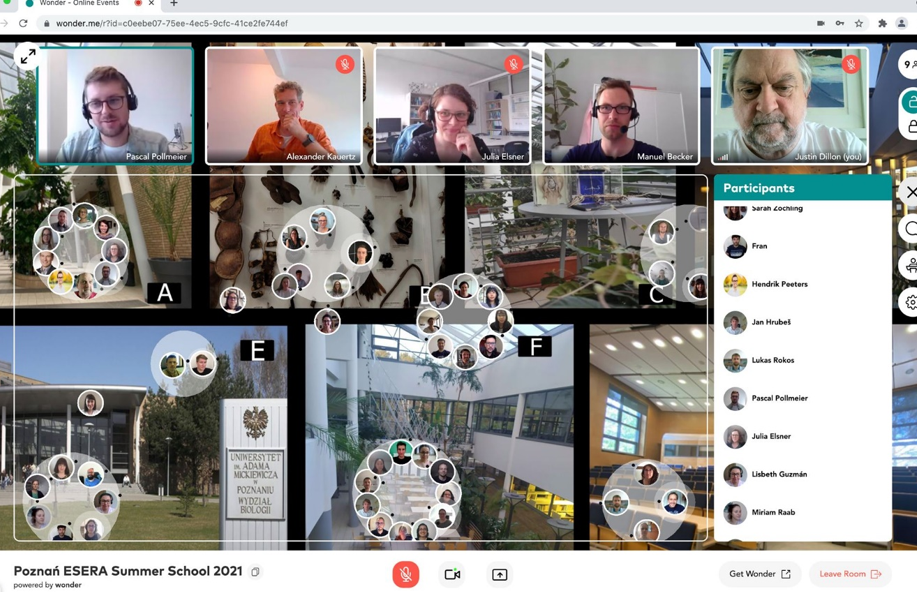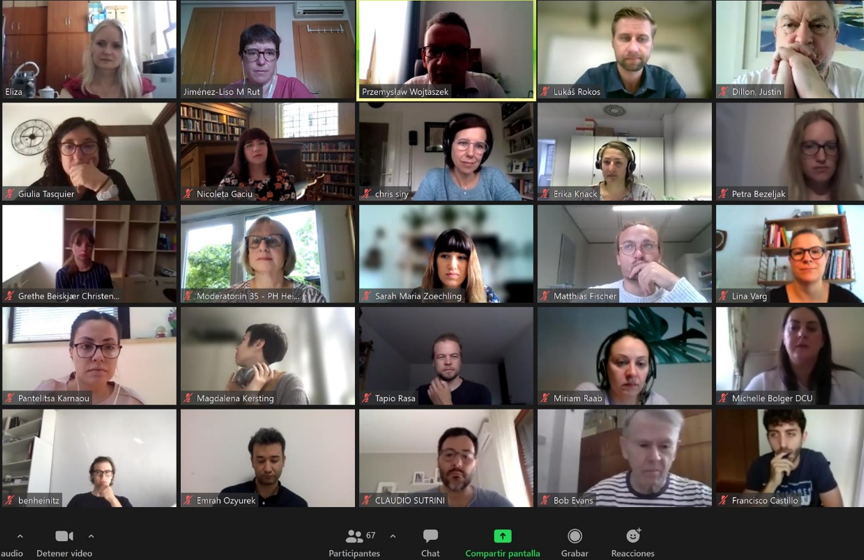ESERA Summer School 2021 has started on 5 July 2021 and lasted till 9th of July 2021. Due to the pandemic situation, it was conducted in the form of online classes. It was organized by Adam Mickiewicz University, Faculty of Biology in Poznań. Members of the local organizing committee included staff and students. Among the staff there were: Eliza Rybska, Renata Dudziak, Agnieszka Cieszyńska, Daria Hejwosz – Gromkowska. Among students: Sara Piotrowska, Paulina Łuczak, Wiktoria Michalak, Weronika Wąsiak and Weronika Wiśniewska.
Despite not being physically able to meet, the local organising committee organised an online virtual experience for all the participants. Among participants we have had 46 PhD students and 18 mentors, 14 of them were group mentors and 4 were poster reviewers.
All common meetings were held on the zoom, except for the poster session which was held on wonder.me. Participants were offered five plenary lectures: ‘Science Communication on YouTube’ (Veli-Matti Vesterinen), ‘Inquiry-based science teaching and the nature of scientific inquiry’ (Renée Schwartz), ‘Research on modelling-based teaching and learning” (Costas Constantinou), ‘Narratives of change for sustainability: fostering transformation through climate change education’ (Giulia Tasquier), ‘Women in physics: some of the hows and whys of gender research’ (Judith Hillier). In addition to plenaries, there were opportunities to attend 6 different workshops: ‘Writing, reviewing, and publishing in science education’ (Justin Dillon), ‘An exploration of content analysis – Coding data for meaning’ (Patricia Patrick), ‘PhD research as seen from the perspective of the Toulmin argumentation model’ (Bob Evans and Alexander Kauertz), ‘Decisions in selecting approaches for visualisation and analysis of quantitative data’ (Nicoleta Gaciu), ‘Using Delphi studies and focus groups in science education research’ (Justin Dillon), ‘Creating engaging online presentations’ (Veli-Matti Vesterinen).
The feedback was very positive and although we were unable to meet face-to-face it was a very productive week for the Ph.D. students as well as for mentors. As an example of benefits we can use this response from evaluation survey:
‘The Summer School offered the opportunity to network and exchange ideas about various projects. Through the many (international) perspectives on my project, I gained new ideas for the further development and deepening of my work.’
‘Summer school is a deeply formative space and encompasses the needs I have as a student for my research and to deepen my understanding of our field.’



